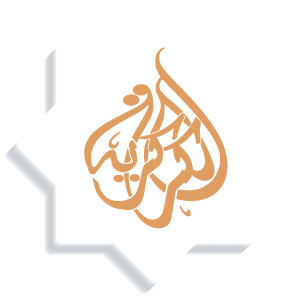بسم الله الرحمن الرحيم
و الصلاة و السلام على أشرف المرسلين
و على اله و اصحابه أجمعين
Stalemate pages
“They do not appreciate Allah as He deserves it when they say,” Allah did not sent anything down upon a human. Say: “Who sent down the Book that Moussa brought as Light and guide for people? You make pages of it (qaratîs) to show some, while hiding a lot. You have been taught that you did not know, neither you nor your ancestors. Say, “Allah,” then, let them have fun in their stalemate. “ [1]
Cause of the revelation of the verse:
Mālik ibn as-Sayf came one day to confront the Prophet ﷺ, who then said to him, “I ask you, by the One who sent down the Torah on Moussa, do you not find in the Torah that Allah hates the fat religious dignitary?” And the concerned man was actually fat. He became angry and said, “By Allah, Allah has never brought anything down on any human being!” His companions who were then with him said: “Woe to you! Not even on Moussa!?” He insisted: “By Allah, Allah has never sent anything down upon any human being!”. And it was then that the verse was revealed. [2]
This verse describes the state of those who reduced the divines Lights to metaphorical concepts devoid of any comparison or analogy. They thereby claimed the transcendence of the True, but they intend to attribute to Him this frozen and cold transcendence, which He has never attributed to Himself nor to His Prophet ﷺ. They thus made of a Book of Tawhid pages of stagnation (tawhîl), taking from what went in the direction of their passions and giving interpretations to what was going against them. They thus showed zeal and exaggerated in transcendence (tanzîh), and ended up by considering Him as being very far from His servants … whereas by His Word He Himself established His Proximity ﷻ: “And if My servants ask you about Me … so I’m very close.” [3] And He also said through the mouth of His Prophet, “Allah created Adam in His image.”[4] There is therefore nothing blameworthy in considering that His Attributes appear and manifest themselves on His servants, without any form of duality, since in Reality it is to Him that the exclusivity of Existence returns … Thus, in these people, the conception of divine transcendence (tanzîh) is in reality nothing but the analogy itself (tashbîh) and the state of remoteness from Allah ﷻ. Sayidi al-‘Alawiy (qaddas Allâhu sirrahu) refers to these people by saying:
“The farthest people from Allâh are the most zealous in His tanzîh.”
You consider Him transcendent by your thought and your intellect, but your heart considers Him only by analogy … is this the real tanzîh? You did not esteem Him to his true value, because you did not know Him. If you had known Him, you would have known that there is not a single atom in this universe which does not endure but by His Essence, which does not exist but by His Attributes, and which is not apparent but by His Names.
The quintessence of the verse:
If you had Known Him ﷻ, you would have known that nothing is outside of Him, Glorified be He. You would have understood that He is the Act and its consequence, appearing in the world of possibilities. He says thus about Himself: “Allah is the Light of the heavens and the earth” [5]. And He says, “Say:”Who sent down the Book that Moussa brought as Light and guide for people?”. He ﷻ in this verse associated the Light with the guidance, so that any person to whom the Light will reach will be guided, while any person to whom the Light will escape will go astray and remain in the stalemate pages (qaratis), imagining himself to perform tanzîh while he is only in the tachbîh; thinking to get closer while he is actually moving away. He renounces the act of giving an interpretation to the texts (ta’wîl), then he interprets them himself, and here he declares non-authentic that very thing which he undoubtedly asserts elsewhere, always according to the good will of his dark passions. If, on the contrary, he resigned himself and put his fate to Allah, it would be better for him and more durable.
He thus disavows the attribute of the Messenger of Allâh ﷺ as denied by the Jews before him, by hiding his references in the Torah. The True however well described himﷺ in the Qur’an as a Light and a torch, since Heﷻ explicitly named him: “illuminating torch” [6]. Nevertheless, it is claimed that the Beloved ﷺ would be only a man and a servant … Yes, he is indeed a man, but not like all men! as sapphire is a stone, but not like all stones. Evidently, he is ﷺ a servant (‘abd) … but what a servant! The first of the servants, the most perfect and the most pious, on him the peace and the best regards.
Thus, Allah’s Will came to His Prophet, manifested in the form of these people as well as those who resemble them in thought. “Say: “Allah,” proclaims the degrees of Tawheed and the senses of the Singularity (tafrîd), “then let them have fun in their stalemate”. That is to say, leave them in the illusions of their physical perceptions, the imaginations of their beautiful words, and the mirages of the created world: this is what the word “khawd” (here translated as “stalemate”) refers to here. For the khawd means in fact a mixture of water and soil (earth), that is to say that the water of tanzîh is mixed with the land (earth) of tachbîh, obstructing their inner visions and depriving them of the appearance in them of the Lights of the guidance. They are therefore and remain in their “khawd”, playing and having fun, because of their consideration, confining the deep senses within spatio-temporal limits. They limited the possibility of the Vision to the Hereafter, which made them the children of Dounia… Yet, Dounia is only game and fun.
Sayidi al-‘Alawiy (qaddas Allâhu sirrahu) says in one of his poems:
O Messenger of Allah,you are…
you are the materialized Light
Light upon Light,you came
by you the Koran took shape
concerning his description ﷺ we are saying:
O you aspirant to the knowledge,to the reality of ihsan
here is the door of the approval for who evoke his Master
link yourself to the Adnanite,he is the door of the Merciful
he is the light of the truth, upon him Allah’s prayer
he is the great entrance, the pilar and the sacred place
Ahmad,the primordiality light, may Allah pray upon him!
O you the faqir,if you are faithfully absorbed
of the secret indigent and lover of the Lord
light is the path for the majestic Cenacle
it is the remedy of the sick person and no cure out of it
And in the tafsîr of the Koran “at-Ta’wîlât an-Najmiyah”:
“Say: “Who sent down the book that Moussa brought as Light and guide for people?”: Who can bring back a book similar to the one with which came Moussa (‘alayhi s-salâm), who has the particularity of illuminating the hardened hearts by the Light of Allah ﷻ, and who would have the peculiarity, by this Light, to guide to Allah ﷻ and His religion, except Allah Himself? Because truly, the book that reports by other than Allah can not be like this.
“You make pages of it”: He sent down the Book that illuminates hearts and guides them to Him, so that you may attain Knowledge through Him, but you have made “pages (qarâtîs)” that is to say pages written on sheets instead of being written in your hearts, consisting in the fact to adorn yourself with the characters of the Book itself.You just have to show these scriptures in their literal and exoteric sense: “to show a part of it while hiding a lot”, that is to say by hiding many of the Realities related to the Light of the Book and its Guidance, which are unlimited. “You have been taught that you did not know, neither you nor your ancestors”. Learned about the Perfection of the Muhammad degree, as well as the Perfection of the religion which he brings, beyond that of the other Prophets (‘alayhim s-salam), as well as from all other religions. In this sense He also says ﷻ: “And he teaches you the Book and Wisdom, as well as what you did not know,” what the Prophet ﷺ taught them from the Book is the following Word: ” Say, “Allah,” then, let them have fun in their stalemate (khawd)”. As for Wisdom, it refers to His Secret ﷻ, whose learning is done by the following (of the Shaykh), a secret following another. “Say:”Allah”: He warned you, in a state of isolation (khalwa), against the consideration of anyone other than Him “then leave them”, that is to say, let the creation fun in its stalemate (khawd): let them have fun with those who have joined them, and it only remains for them to say on the Day of regret: “We associated ourselves with the people of the stalemate (khawd)”. [7]
[1] Sourate al-An’âm, verse 91.
[2] Tafsîr al-Jâmi’ li-Ahkâm al-Qor’ân, al-Qurtubiy, tome 8 page 455.
[3] Sourate al-Baqara, verse 186.
[4] Sahîh al-Boukhâriy, Hadîth n°5786.
[5] Sourate al-Noûr, verse 35.
[6] Sourate al-Ahzâb, verse 46.
[7] Tafsîr at-Ta’wîlât an-Najmiyah fî tafsîr al-Ichâriy as-Soûfiy, al-Imâm Ahmad ibn ‘Omar.



